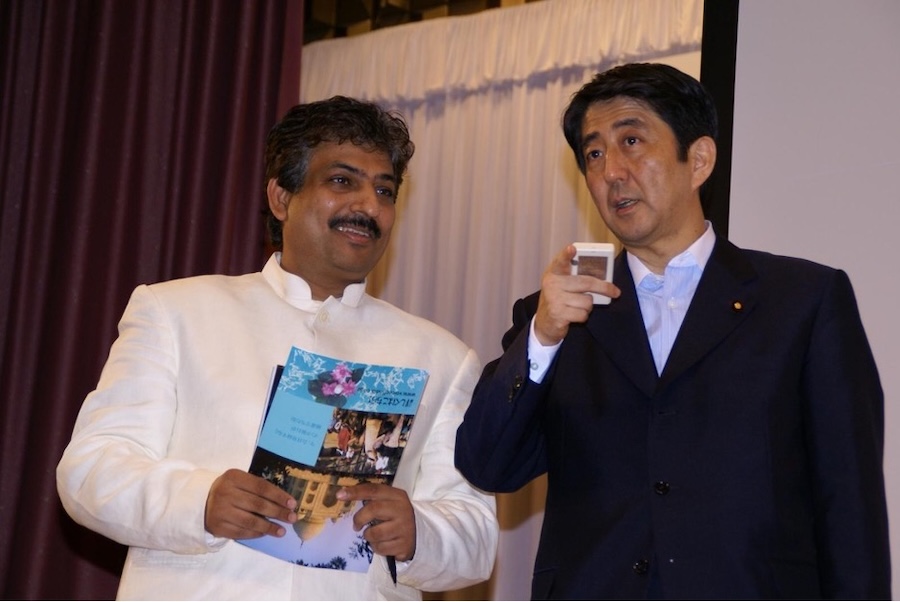Written by Vibhav Kant Upadhyay
A New Paradigm
For over a century, the world’s development journey has been driven by the exploitation of resources, of people, and of nature. The result is an unbalanced world marked by inequality, environmental degradation, and fragile socio-economic systems.
The developed countries, constituting only 5 percent of the world’s population, followed a route to development that was most conveniently available to them at the time. The real threat today is the inclination of the remaining 95 percent to follow the same model.
If that happens, the planet faces not only catastrophic environmental collapse but also deep geopolitical instability as nations compete for increasingly scarce resources.
ADM was born as an answer to this crisis- a visionary framework that shifts global growth from exploitation to empowerment, creating balance between aspiration and sustainability.
Core Philosophy
ADM rests on three interdependent pillars:
Empowerment: Building systems where every individual and community contributes meaningfully to progress.
Equity: Ensuring fair and inclusive access to resources, opportunities, and outcomes.
Sustainability: Advancing human prosperity without depleting the natural environment or compromising future generations.
The ADM Framework
ADM integrates ideology, strategy, and execution through three dynamic components:
EES (Energy Efficiency, Environmental Responsibility & Sustainability): Creating responsible systems that optimize energy and resources.
RME (Relationship, Mechanism, Execution): Building deep cross-border, multi-sector collaboration to advance shared goals.
ISP (Ideology, Systems & Product): Translating ADM principles into tangible, scalable initiatives across industries.
These pillars collectively form the Development Operating System for a balanced nation, achieving equilibrium among growth, inclusivity, and sustainability.
ADM INITIATIVES
National Electric Vehicle Initiative (NEVI) Redefining Mobility for the People
NEVI envisions an alternative transportation model that is environmentally sustainable, economically viable, and energy-efficient. It promotes the adoption of electric vehicles across passenger, commercial, and public transport segments, making clean mobility accessible to all. With integrated planning and strategic technology partnerships, NEVI is paving the way for a carbon-neutral transportation ecosystem that is both affordable and inclusive.
Alternative Education Ecosystem (AEE) Reimagining Education for the Future
The AEE initiative transforms education into a more equitable and technology-driven system. By combining digital innovation with ADM’s empowerment philosophy, it ensures every learner has access to quality education and lifelong learning opportunities. This model supports self-learning, inclusivity, and skill empowerment, preparing the next generation to thrive in a rapidly evolving global landscape.
Delhi–Mumbai Industrial Corridor (DMIC)
Balanced Industrial Growth and Regional Empowerment
DMIC is one of ADM’s landmark successes, conceived to create a high-speed, high-capacity industrial corridor connecting Delhi and Mumbai. Beyond infrastructure, its purpose is to balance regional development, spread employment opportunities, and bridge urban-rural disparities.
Varanasi–Kyoto Initiative (VAKYO)
Cultural Diplomacy through Sustainable Urbanism
VAKYO unites the heritage cities of Varanasi and Kyoto to create a model of smart, sustainable, and culturally sensitive urban development. Inspired by Kyoto’s transformation, it aims to evolve Varanasi into a Smart Heritage City while preserving its cultural legacy and embracing modern sustainability practices. This initiative showcases how culture and sustainability can coexist, linking tradition, innovation, and global collaboration.
THE GLOBAL MOVEMENT FOR CHANGE
ADM is not merely a development model. It is a philosophy for the 21st century, one that challenges the exploitative status quo and empowers nations to design their own sustainable futures.
By prioritizing human empowerment, environmental accountability, and equitable growth, ADM envisions a world where development uplifts all.
